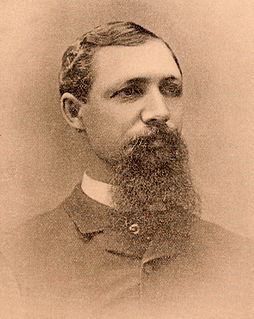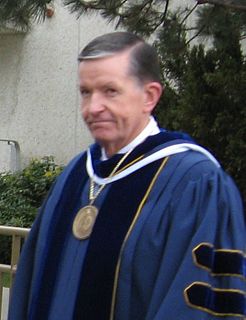A Quote by John Remsburg
Zagreus was the son of Zeus. He was slain by the Titans, buried at the foot of Mount Parnassus, and rose from the dead as Dionysos. He was the god of fruit and wine. Like those of Christ his most devoted followers were women. He is the beloved son and occupies a throne at the right hand of his father, Zeus. His empty tomb at Delphi was long preserved by his devotees as proof of his death, and resurrection.
Related Quotes
Jesus Christ was the only one capable of performing the magnificent Atonement because He was the only perfect man and the Only Begotten Son of God the Father. He received His commission for this essential work from His Father before the world was established. His perfect mortal life devoid of sin, the shedding of His blood, His suffering in the garden and upon the cross, His voluntary death, and the Resurrection of His body from the tomb made possible a full Atonement for people of every generation and time.
Thank and glorify His Beloved Son, who, with indescribable suffering, gave His life on Calvary's cross to pay the debt of mortal sin. He it was who, through His atoning sacrifice, broke the bonds of death and with godly power rose triumphant from the tomb. He is our Redeemer, the Redeemer of all mankind. He is the Savior of the world. He is the Son of God, the Author of our salvation.
As for my brothers,' Zeus said, 'we are thankful -' he cleared his throat, like the words were hard to get out - 'erm, thankful for the aid of Hades.' The Lord of the Dead nodded. He had a smug look on his face, but I figure he'd earned the right. He patted his son Nico on the shoulders, and Nico looked happier than I'd ever seen him.
And he arose and came to his father. But while he was still a long way off, his father saw him and felt compassion, and ran and embraced him and kissed him. And the son said to him, 'Father, I have sinned against heaven and before you. I am no longer worthy to be called your son. But the father said to his servants, 'Bring quickly the best robe, and put it on him, and put a ring on his hand, and shoes on his feet. And bring the fattened calf and kill it, and cet us eat and celebrate. For this my son was dead, and is alive again; he was lost, and is found.' And they began to celebrate.
To be "in Christ" is to place one's trust in Him for salvation from sin. To be "in Christ" is to trust His goodness, not our own; to trust that His sacrificial death on the cross paid the complete debt of death we owe for our sin; to trust that His resurrection gives us eternal life instead of relying upon our own ability to please God. To be "in Christ" is to claim, by faith, the free gift of salvation. To be "in Christ" is to enjoy a completely restored relationship with our Father in heaven by virtue of His Son's righteous standing.
Many years ago, our father Ibrahim (AS) made a choice. He loved his son. But He loved God more. The commandment came to sacrifice his son. But it wasn't his son that was slaughtered. It was his attachment to anything that could compete with his love for God. So let us ask ourselves in these beautiful days of sacrifice, which attachments do we need to slaughter?
Christ sits in the body at the right hand of God the Father, but we do not hold that the right hand of the Father is actual place. For how could He that is uncircumscribed have a right hand limited by place? But we understand the right hand of the Father to be the glory and honor of the Godhead in which the Son of God, Who existed as God before the ages, and is of like essence to the Father, and in the end became flesh, has a seat in the body, His flesh sharing in the glory. For He along with His flesh is adored with one adoration by all creation.
When the father dies, he writes, the son becomes his own father and his own son. He looks at is son and sees himself in the face of the boy. He imagines what the boy sees when he looks at him and finds himself becoming his own father. Inexplicably, he is moved by this. It is not just the sight of the boy that moves him, not even the thought of standing inside his father, but what he sees in the boy of his own vanished past. It is a nostalgia for his own life that he feels, perhaps, a memory of his own boyhood as a son to his father.
But once a dead God, always a dead God, even resurrected. The Son must have the taste of death forever in his mouth. The Trinity must be tainted by it; there must be a certain stench at the right hand of God the Father. The horror must be real. Why would God wish that upon Himself? Why not leave death to mortals? Why make dirty what is beautiful, spoil what is perfect? -- Love. That was his answer.
The face of the Son of God, who, instead of accepting the sacrifice of one of his creatures to satisfy his justice or support his dignity, gave himself utterly unto them, and therein to the Father by doing his lovely will; who suffered unto the death, not that men might not suffer, but that their suffering might be like his, and lead them up to his perfection.































